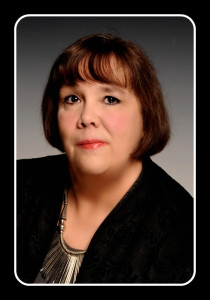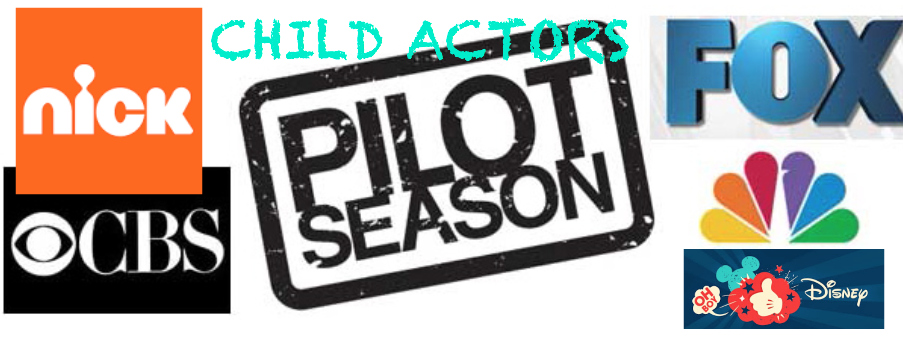It’s summertime, and the momagers of would-be Disney stars are getting bombarded with letters and sales pitches from companies who want to help them “market” their children to casting directors. I’ve heard from a number of parents who have said something like this: “If I’d known how the process really worked, a scammer couldn’t have fooled me.” So here’s a look at how the process looks from my house.
My husband and I are proud grandparents raising child actor Kameron Badgers, age 12 in Texas. Since signing with his agent in October, 2012, he’s completed three feature films, a TV pilot, four commercials, and two “industrials,” and has more professional acting gigs booked. He’s also a circus performer (juggler, clown, aerialist).
I spend an inordinate amount of time sitting in waiting rooms outside casting director’s offices, on film sets and commercial shoots, and in the waiting room outside acting classes for working actors. People talk. You hear things. So I’m passing some of my rules for spotting real opportunities along.
 Rule 1: Consider the Source
Rule 1: Consider the Source
As far as I know, there are only four legitimate sources of real casting notices.
- A “breakdown” notice posted on a legitimate casting site (Actor’s Access, Breakdown Services, Casting Networks, etc.)
- An email, phone call, or text message from your child’s agent or manager.
- Trade Media
- An email, phone call, or text message from a director, casting agent, or fellow actor offering insider information on a role.
#4 only happens to people who have connections within the industry. So ask yourself: how many texts or phone calls have you gotten lately from Hollywood directors or casting directors you know personally? Yeah, me neither.
#1 is most common, and this is a sample of online casting site notice:
Here’s what a breakdown notice from one of the legitimate casting sites looks like:
| Thursday, Jun. 6, 2013, 4:25 PM PacificFILM NAMESAG-AFTRA (Or “Non-Union”) | Executive Producers, Writer/Director, Casting Director:(List of names you can verify in IMDB)Shoot/Start Date: January2014Location City/State | |
| SUBMISSION METHOD: (It will say electronic, live audition, video, etc.) | ||
| [ Jill ] Gender, age, description[ Jack ] Gender, age, description |
| Summary: Description of the film. (Note: if the film involves anything unusual — bullying, violence, drugs, and so on – those things should be SPELLED OUT in the casting notice. Anyone who won’t tell you up front what you might be getting into is suspect in my book.) |
Personally, my son doesn’t book much from the casting sites. He’s more than busy with what his agent sends to him directly.
Sample Agency/Casting Director “General Call” Notice
About ten percent of Kameron’s auditions start with an email like this from his agent. This is an example of a general notice, sent to everyone on the agent’s roster, or specific groups within the roster (parents of teenagers, women, Hispanic actors who speak Spanish, and other groups the agency represents). You review the notice, and decide if you want the agent to submit you for the part. Sometimes, you are asked to “self-submit.” That means the contact information for the casting director is in the email, and you can contact them directly.
Our agent uses this kind of general notice when a casting director wants to see a very large group of people. For instance, there was a call recently for 200 extras for a film in North Texas. So “general notices” were sent, and anyone who fit the specs was welcome to show to to act as the audience for a sporting event filmed at a local stadium.
Sometimes, she’ll use it when she is looking for people who aren’t represented by the agency — for instance, most talent agents don’t represent children under five, but if a casting director wants siblings of different ages, we might see a notice that says, “siblings 2-4 and 8-10,” and we can ask to submit the represented older child and an unrepresented younger sibling.
More often, general notices are used when it isn’t clear to the agent who on their roster is an exact match. For instance, when a casting director wanted kids who were experts with his client’s specific brand of in-line skates, they sent out a general notice. The agency knew who on the roster was a skater — but not what brand of skates they used, so a general notice allowed families to self-submit.
Even though this is a general notice sent to everyone represented by the agency, note how specific it is. The “casting calls” I’ve seen from the pay-to-audition folks tend to be open to anyone and everyone, from infants to high school seniors, and they’re skimpy on details like what the job pays, what the part is, when it’s filming, and so forth.
|
|
|
Quick Dictionary for Breakdown Verbiage and Vocabulary:
An important note about the vocabulary in the notice above. The word fee means the amount of money your child will earn if cast in this role. There is no cost to submit your child for this role.
The word read — as in reads as 9 years old — means looks like. Kids who read younger get more work than kids who read older — think of all those TV shows about high school kids where the lead actors are in their late 20′s.
A cold read means that your child won’t see a script until they arrive.
The phrase +20% means that the production company will pay the offered fee to your child, and an agency commission of 20% to your agent. The production company pays the agency, the agency takes its cut, and sends you the rest less any taxes, if required by your state.
Some states require a Coogan Trust for minors before they can get the required work permit. If you live or work in a Coogan Trust state (including California or New York), at least 15% of what your child earns will be withheld and placed in a bank account that neither you nor the child can touch until they are grown. Even if you don’t live in a Coogan Trust state, your child will probably need a work permit if they are under the age of 14.
The words day rate and usage refer to what the production company is buying. Most acting jobs pay a day rate or a flat fee. That fee covers the right to use the product (photos, video, performance) for a specified amount of time, in specified media, in a specified geography. Your agent will explain all of this, and negotiate the best possible deal for your child. But if you don’t like the money that’s offered, don’t take the job.
Sample Agent-Screened Audition Notice
Ninety percent of Kameron’s auditions start with an email from his agent about an audition arranged for him after the agency pre-screened talent with the casting director.
The agent may have submitted a list of 10 potential kids to the casting director, and the casting director may have narrowed it from there — or the casting director may have said, “Send me your top five boys who fit this description.
This is an example of an agent-screened audition notice:
Subject: Audition notice
REMINDER: Please confirm that you got this and will be there on time, prepared for your audition.
Congratulations!! (Child’s name) is scheduled to audition for a feature film (film name) for the role of (character) on (Day/Date/Time) at (location) for (casting director).
This role is playing (famous actress and actor’s) son. (Casting director) is one of THE biggest and best casting directors. She is assisting the LA casting director and is excellent to read for. Look her up on IMDB!
Sides attached. This gives them PLENTY of time to prepare! Make sure they are OFF BOOK. Research the director and all involved. You know what kind of movie it will be with (famous actor) involved! FUN!!
GOOD LUCK! Confirm asap!!!!
The word sides means the script and description of what your child will wear, what he will do, and the actions the casting director will require him to perform during the audition. The words off book mean that the actor isn’t allowed a script, teleprompter, or cues during the audition, and must have memorized the lines ahead of time.
Also, please note that the email comes to the child’s parent — not directly to the child. This allows the parent to decide whether or not to accept an audition on behalf of their child, without any possibility of a conflict between a child who wants to audition for a part and a parent who doesn’t want them to audition for that specific part for some reason (content, timing, distance to the audition site, etc.).
Rule 2: Never Pay for Auditions
 Having a child who wants to be a star can get expensive. But the things you pay for — acting classes, wardrobe, photography, videotaped auditions, travel, and so on — never, ever include paying for auditions.
Having a child who wants to be a star can get expensive. But the things you pay for — acting classes, wardrobe, photography, videotaped auditions, travel, and so on — never, ever include paying for auditions.
There are a number of very large companies out there who bill themselves as “talent scouts,” “talent marketing sites,” and so on. One of them seems to make it a habit of suing anyone who suggests that they are scammers, and holds large casting calls in cities around the country where they guarantee an audition for your child with a “real Hollywood casting director.”
This company often offers workshops with a famous actor or actress that “they worked with” early in their career — usually a teen star from Disney or Nickelodeon that your children will recognize. They also seem to put out a lot of press releases with headlines like “Adorable 7-year-old Actress Signs With Top Agent in (City).”
One of my neighbors believed that she’d been promised a Disney audition for her child upon payment of a $4,000 fee — even though there wasn’t a word about Disney in the email or printed materials she was given. (Nobody wants to run afoul of the Disney lawyers, not even a scammer!) Also, an audition is typically for a specific part, not for a network or studio.
The company my neighbor paid isn’t quite so upfront about the fact that they charge up to $8,000 for things that we got without paying a dime — or that they paid the kid actor a performance fee to show up and talk about his career, and he may (or may not) have been a “client” of the company’s. Kids (and parents) often jump to the conclusion that the actor speaking at the “casting call” is a happy, successful graduate of the program they’re enrolling in, but that is seldom clearly stated — just implied.
I’m not here to say you shouldn’t do business with a marketing company that promises to showcase your child’s photo and resume. That’s a decision you should make for yourself.
However, we didn’t have to pay someone to showcase Kameron’s photo and resume to help him get an agent. I do not personally know any parent of a working child actor who paid for “marketing” or “listing” services, either. I do know a number of unhappy parents of non-working would-be actors who paid thousands of dollars to companies that promised a lot but wound up telling them that things just don’t work out for everyone.
Rule 3: Don’t Let “Them” Sell to Your Child
Working with different directors, in different conditions, gives child actors valuable skills that will help in any career. My grandson Kameron Badgers and Shane Shuma wait while the crew sets up another scene in a TV pilot they filmed together.
One of the primary red flags of a potential scam is when a scammer sells the “opportunity” directly to children. If there’s an ad for a “casting call” published on a website frequented by kids, or heard on a radio station you listen to only when the kids are in the car, that’s a red flag.
Here are the top red flags I hear about when people talk about “opportunities” they paid for:
- The process of being sold on the “opportunity” began with attending a large, open casting call where hundreds (or thousands) of families come in, and someone tells you (in front of your child) how talented they are, how they have a very commercial “look” that’s perfect for what people want now, and how wonderful it will be when they are a star.
- The company advertises the “casting call” on radio & TV, in media aimed at kids and families. Think about this for a minute, and ask yourself, “Who runs ads on radio and TV?” The answer of course is “People who want to sell something.” So what are these ads selling? A company announcing a legitimate open casting call doesn’t have to pay for ads. Don’t believe me? Watch what happens when America’s Got Talent, American Idol, or any other major film or reality TV show comes to town. The Transformers 4 movie is filming in Texas right now, and I think every newspaper, television station and talk show has run some sort of promotion about how to be an extra on the film — all of them unpaid “editorial” coverage, not paid ads. They don’t need to pay for ads because they get tons of free publicity, and thousands of people line up to audition.
- At some point during the initial meeting, they segregate mom and dad from the child. Kids who’ve experienced this tell me that the audition consists of standing up and singing Happy Birthday or reading a few lines from a script — or if they’re pre-schoolers, “playing pretend” for a few seconds. Then they’re subjected to a subtle but effective sales pitch that starts by a “director” asking leading questions like, “Do you want to be on TV? Do you want to have a lot of money? Do you think your parents believe you have talent, and want to help you?” By the time they see their parents again they’re convinced that they’ve been promised Nirvana (or at least the Disney Channel). The only possible barrier to them becoming the next Selena Gomez is obstinate parents who are unwilling to part with a “few dollars” (translation: thousands of dollars) to turn the dream into reality.
It’s that last one that bothers me the most. My grandson’s agent doesn’t communicate with the children on her roster except through their guardians or when the parents are in the room. I am seldom in the room when my child auditions, but he is never alone with a casting director, either. I’m always within earshot, and I know exactly who’s in the room and what they’re doing.
It will stay that way until he’s an adult at age 18. I’m the grown-up. It’s my job to decide what’s in his best interest, whether he agrees with my assessment or not.
I certainly don’t need a stranger selling my child the idea that I don’t love him, don’t believe in his talent, or am the devil incarnate actively blocking him from stardom if I don’t pay up for the “opportunity” they’re selling. Do you?
 Rule 4: Do Your Homework
Rule 4: Do Your Homework
If you are considering paying a fee to a talent listing service or talent marketing company that sells a method, process, or program designed to help your child get an agent or auditions, do your homework. Start with these links, which provide authoritative information on known scams targeted at young actors.
- SAG/AFTRA: Scams in the Entertainment Industry
- How to Spot a Talent Scam
- Support for Professional Child Actors & their Families
If you’re still interested after checking the opportunity against known scams, you might consider adding some additional steps before you sign a contract or write a check.
For example, why not talk to the parents of some kids who have gone through the program, gotten agents, and are currently booking work in your city? (Not parents who are currently in the program: the parents of kids who have “graduated” from being marketed to agents, to actually being represented and booking paying jobs.)
Or why not talk to some of the SAG-franchised agents in your city about whether or not they have ever signed talent referred to them by the company you’re considering? There is a list of SAG-franchised agents — that is the elite talent agents who work with top Screen Actors Guild talent — on the SAG website, divided by city and state.
If the company behind the opportunity tells you they’re making their first visit to your city and don’t have any local references yet, ask for references in another town – then verify them. If you can’t reach the people whose names they provide — or you can’t get any independent verification that they are working actors — you may be looking at a red flag.
How do you verify that a stranger described to you as a “working actor” is actually getting paying jobs? Start with the Internet Movie Database (IMDB), IMDBPro (the paid profesional version with more extensive information) and Google. You should find links to photos, videos, and credits for the person as well as the name of their agent associated with them. Then you can check the agent’s website, to be sure they’re listed on it, and check the agent’s credentials with SAG/AFTRA.
Rule 5: Get Real
In 2012, a young, untrained actress named Quvenzhané Wallis became the youngest Oscar nominee in history. But the odds that an untrained young actor will get an audition — let alone a leading role in a motion picture — are about equal to the odds of winning the next gigantic Powerball lottery off one quick pick ticket. That happened recently, too. But I won’t be betting my retirement on it!
You may have a child who really is a natural talent, able to deliver an Oscar-worthy performance with no training or help. But most of us don’t. Even if you do, convincing a casting director to audition a young actor with no training and no referral from a legitimate agent they know is darn near impossible.
That’s how the scammers stay in business: it can seem hard to “break in” to a closed business. But it isn’t really — not if you’re willing to give up thoughts of bypassing the step-by-step process in favor of buying your way to a short-cut.
Working child actors train, practice, and spend hours developing their skills. My grandson Kameron is learning to juggle knives – that is a 28″ sharp blade flying towards his head. There’s no shortcut to mastering real skills.
Long before they went to Hollywood, most of the young stars you see on TV or in the movies were going to class to master their craft. And the “craft” includes more than acting.
Learning the required skills is hard work. It isn’t fast, and it isn’t cheap.
You train. You earn referrals. You show up prepared and ready for audition after audition after audition.
There aren’t any guarantees. Not every child’s dream will come true. A lot of stars that never were end up parking cars and pumping gas. But there aren’t any shortcuts, either.
At least the ones who tried the step-by-step process learned something and made friends along the way. For us, we’re confident that whether Kameron ever books another acting job or not, the experiences he’s having now will give him skills that will help him in any career. He already knows how to handle rejection, present himself to a potential employer, talk to anyone about almost anything, and handle a variety of on-the-job situations.
I’m glad my son didn’t become an “instant star” cast in a lead role before he was ready, and I’m even happier we didn’t pay thousands of dollars to someone who promised a non-existent shortcut to stardom.
I could spend $100 to put my child in a model’s showcase, and $35 each for two of us to attend an expo where a range of “vendors” are on hand to sell things. Or, I could invest $170 in a workshop recommended by my agent, or even six weeks or so of acting or modeling classes.
I know which one I’d choose — Oops! Gotta run: my 12-year-old has an acting class in 20 minutes!

Photo: Constance Ashley Photography, Dallas, TX
Written by HMB Contributor, Deb McAlister-Holland. Deb is a writer, author, marketer, and serial entrepreneur who lives in Dallas, Texas. For the past 30 years, she’s been involved in launching technology products and services, while raising a family that includes four working performers. You can follow her on twitter @debmcalister for advice on accounting, marketing and technology.










Have you ever heard of The Acting League aka Society Entertainment? They claim to hold conversations to bring child actress/actors together with directors and agents. They charge a very large amount.